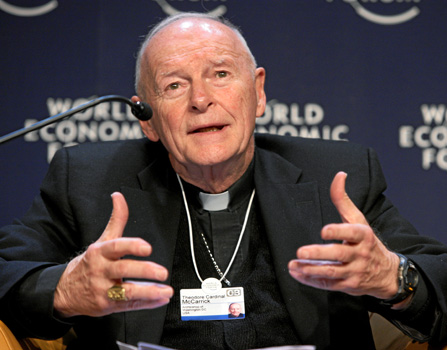By Tim Rohr
Today, I happened to meet up with a friend on regular business. We spoke a bit about the business at hand. However, he soon asked me if I was in a hurry. As my following appointment had been rescheduled, I said "no."
Given the very public role I played in exposing the worst clergy sex abuse, per capita, in the western world (Guam's), it is not uncommon for friends, or sometimes strangers, to say "have you got a few minutes?"
All want to tell me stories they never told. And it's pretty much the same story.
"Father so and so..." And it gets really graphic - grotesquely graphic - from there.
Since a law was enacted in 2016 in Guam giving victims of sex abuse, clergy or otherwise, to sue both their perpetrators and certain institutions, many, many victims have come forward to tell their stories to attorneys.
Almost all of those victims, in their public filings, hid behind their initials.
Given that I was intimately involved with the first victims who put their names and faces to their accusations (of Apuron) before there was a law to protect them, I did not like subsequent victims hiding behind mere initials.
But the conversation with my friend today helped me to better understand.
The real reason these victims hid behind their initials was not out of any fear of repercussions from the accused, nor even public embarrassment, but fear from their own families, especially their parents.
The usual narrative is that parents were so respectful of The Church and the clergy that child victims knew they would not be believed. And indeed, that was the testimony of the few that we publicly heard from: that their perpetrators said "nobody will believe you."
But my friend, today, a local boy who grew to manhood in Guam in the 50's and 60's, and specifically a Catholic "boy" during the reigns of Bishops Baumgartner and Flores, under whose episcopates most of the legally-alleged clerical abuses occurred, helped me understand.
The real issue - if not the real culprit - was "a culture" which curried favor with elites (especially clergy) at the expense of their own children.
In other words (at least per my friend), these parents KNEW there was "a problem" with their fave priests.
But because having a priest (or a nun) in the family or being in anyway closely associated with a priest or a nun was such an elevation of status in local culture, it was a grave sin - not against God's law - but against "the law of family status" to admit or permit the mere mention of any clerical or religious peccadillo.
Sorry, if that's too esoteric. Here it is in shorter form.
Status, in Guam Spanish and post-Spanish culture, was radically elevated by either having one's own family members admitted to the states of clergy or religious (monks and nuns), or being closely associated with anyone who was (a clergy or religious), and wherein such status accrued to the family name.
You don't have to think too hard to figure how this false sense of status played into the figurative - and sometimes real - slap down of children who dared tell their parents what Father or Sister so-and-so had done to them.
To be continued...maybe.

That might explain why you can scour those court records and not find any instances whatsoever of fathers standing up for their sons against monsters like Broulliard.
ReplyDeleteBut where would we be now if just one boy's father out of the hundreds put the fear of God into just one of the perpetrators?